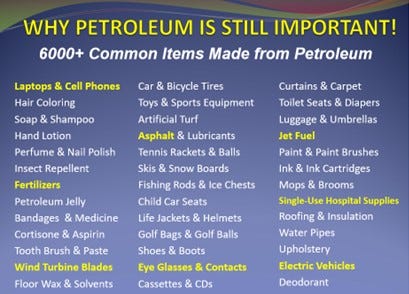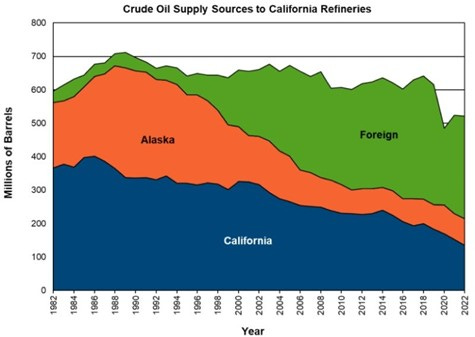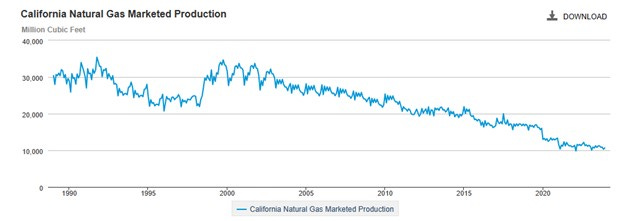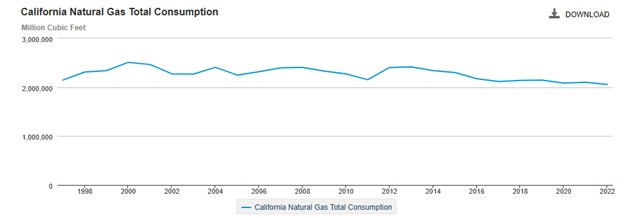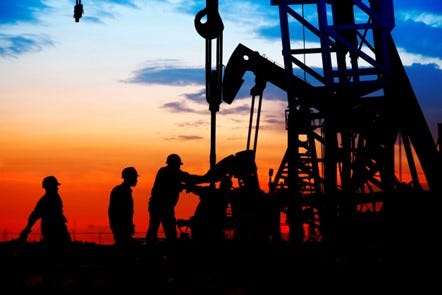COLORADO BANNING OIL & GAS DRILLING WOULD BE A MONUMENTAL MISTAKE ON EVERY LEVEL
Proposed Colorado Senate Bill 24-159 would prohibit new oil and gas drilling permits and prohibit the drilling of new oil and gas wells.
Proposed Colorado Senate Bill 24-159 would mandate that the Colorado Energy and Carbon Management Commission (formerly the Colorado Oil & Gas Conservation Commission) adopt new rules which would prohibit the issuance of new oil and gas drilling permits by the end of 2029 and prohibit the drilling of new oil and gas wells after 2032. This Bill is fanciful, egocentric and would accomplish virtually nothing positive for the State of Colorado.
In the interest of journalistic integrity, I acknowledge that I am a second-generation oil and gas professional. I have worked in the oil and gas industry since I was a teenager in 1975 and I also write and lecture extensively about energy. I acknowledge the need to develop alternative forms of energy and support efforts to make our energy systems cleaner. Having acknowledged these things, I hope that the readers (and the Colorado Legislators) will have the courtesy and good sense to read this analysis about why Colorado Senate Bill 24-159 is not good for the State of Colorado or its citizens. Proposed Colorado Senate Bill 24-159 is poor policy for Colorado for the following reasons:
· The Bill will not reduce the amount of oil and gas consumed in Colorado.
· The Bill arrogantly professes that Colorado still intends to continue using oil and gas, but is unwilling to produce oil and gas in its own back yard (NIMBY).
· The Bill results in oil and gas being produced in other places to replace what is no longer produced in Colorado.
· Oil and gas produced outside of Colorado will inevitably be produced in a less environmentally friendly manner, thereby resulting in more CO2 emissions and environmental impacts.
· The Bill will result in massive destruction of well-paying oil and gas related jobs and will severely damage Colorado’s economy.
· The Bill will decimate local and State tax revenues which are badly needed by local communities, school districts, first responders and health care districts.
Colorado Senate Bill 24-159 Will Not Reduce the Amount of Oil & Gas Used in Colorado: It seems fashionable to bad-mouth oil and gas. Perhaps there is a certain appeal to imagine a world without oil and gas. However, lets dispense with the utopian non-sense that oil and gas are on the verge of being replaced. There are over 6000 common items produced from oil and gas, including single use hospital supplies, fertilizers, laptop computers, wind turbine blades, electric vehicles, cell phones, asphalt, paint, medicine and contact lenses. Currently, there are no easy and affordable methods to replacement oil and gas in the manufacture of most of these products. Most people are unaware that less than 50% of every barrel of crude oil is currently used for gasoline. In other words, if we were to completely eliminate all gasoline-powered engines (not likely), we would still require more than one-half of the crude oil currently produced for the manufacture of the other 6000+ items.
Therefore, allow me to say out loud what many people don’t want to hear “oil and gas is not going away anytime soon.” Oil and gas are literally the foundation for modern society. People gluing their hands to the street in protest of oil are not facing the reality that we will not eliminate oil and gas use during my lifetime, much less by 2032.
Proposed Colorado Senate Bill 24-159 does not purport to eliminate or even reduce the amount of oil and gas used in Colorado, it would simply prohibit Colorado from developing its own oil and gas resources. It might be more understandable if the honorable Senator from Boulder had also introduced a bill which concurrently outlawed the use of oil and gas in Colorado. In other words, it would be more intellectually honest to ban oil and gas drilling if we concurrently prohibited the use of oil and gas and anything manufactured from oil and gas. Instead, we have been presented with a bill which would end oil and gas drilling in Colorado, while simultaneously doing absolutely nothing to eliminate or reduce the amount of oil and gas used in Colorado, leaving us to wonder “exactly what is the point?”
Oil & Gas which is not Produced in Colorado as a result of Senate Bill 24-159 would be Produced Somewhere Else with a Greater Environmental Impact: Every barrel of crude oil and every cubic foot of natural gas not produced in Colorado will be produced somewhere else in the U. S. or somewhere else in the world. If Colorado Senate Bill 24-159 is enacted, the billions of dollars not invested in oil and gas development in Colorado will be spent in Wyoming, Texas, Oklahoma, North Dakota or some other venue where the financial and energy rewards will be reaped by someone else. Make no mistake, halting oil and gas production in Colorado does not halt oil and gas production elsewhere.
One doesn’t have to look any further than California to see what it will look like if Colorado Senate Bill 24-159 is enacted. California’s relentless and heavy-handed regulation of the oil and gas industry has made it almost impossible for new development of oil and gas in California. California is blessed with some of the greatest oil and gas resources in the world. As recently as 2012, California was the third largest producer of oil in the U. S., however, now California’s oil production currently ranks only 7th in the nation and is plummeting quickly. California currently only produces a paltry 6% of the amount of oil produced by Texas.
California-based Chevron recently took a $3.5 billion impairment, mostly as a result of its difficulty operating its California oil and gas assets. According to California officials, shutting down oil and gas production within the State has reduced CO2 emissions. Admittedly, it is accurate to say that shutting down oil and gas production in California has decreased CO2 emissions IN CALIFORNIA. However, those emissions are still being created, California has simply shifted those CO2 emissions to other places.
Despite the fact that California has drastically reduced the amount of oil and gas produced in the state, California remains the largest consumer of jet fuel in the U. S. and is still the 2nd largest consumer of gasoline in the U. S. Crude oil production in California has fallen 56% in the past 30 years; nevertheless, the State still refines huge amounts of crude oil. The difference between now and 1985 is that California currently imports the majority of its oil from other places like Iraq, Venezuela, Saudi Arabia, Ecuador and Russia (prior to 2022).
California’s natural gas production has declined a staggering 66% since 1999; however, California’s natural gas consumption remains virtually unchanged. Hence, California now imports most of its natural gas. In other words, restricting oil and gas production does not result in reduced consumption. Instead, restricting oil and gas production simply causes the oil and gas to be produced somewhere else and imported to California.
Fun Fact: California imports more oil from Iraq than from any other country (because California doesn’t produce enough of its own oil anymore). Iraq flares more gas in one year than California produces and consumes in five years. These are the environmental consequences of out-sourcing oil and gas production to other countries.
Colorado Senate Bill 24-159 Will Result in a Massive Reduction of Oil & Gas Related Jobs & Will Devastate the Colorado Economy: Oil and gas development is among Colorado’s most important industries. Colorado is currently the 5th largest producer of crude oil and the 8th largest producer of natural gas in the United States. Oil and gas activities annually contribute approximately $50 billion to Colorado’s gross domestic product, which constitutes more than 11% of the States’s total GDP. Over half of the GDP is generated in indirect benefits from service companies, hotels, retail establishments, accounting service companies and other businesses which support oil and gas development. A recent study by PricewaterhouseCoopers, shows the oil and gas industry supports more than 300,000 jobs in Colorado (7.7% of Colorado’s total employment) and provides $34.1 billion in annual labor income. Approximately 70% of the lost oil and gas jobs resulting from the proposed Bill would be in the Metro Denver Area.
There is no precedent for a state to eliminate 11% of its GDP and 8% of its work force with a stroke of a pen. By any metric, if enacted, Colorado Senate Bill 24-159 would deliver a devastating body-blow to the Colorado economy and its skilled work force.
Colorado Senate Bill 24-159 Will Result in a Massive Reduction in Tax Revenue Jobs: Oil and gas development operations and related businesses generate a staggering amount of tax revenue for State and local governments, school districts, health care districts and emergency responders. Colorado oil and gas activity generates approximately $2 billion in State and local tax revenue. Approximately $1.2 billion is collected annually in Colorado from property taxes relating to oil and gas, of which approximately $450 million is used to finance schools and approximately $760 million is used to finance fire, police, health care districts, cities, counties and other local services. Prohibiting oil and gas drilling would result in rapidly declining oil and gas production which would translate to steeply declining tax revenues. This loss of tax revenue from oil and gas production will be particularly devastating to communities which are already suffering at the loss of their coal mining and forestry industries. If oil and gas drilling is prohibited in Colorado, some counties could lose more than 60% of their annual tax revenues. When a county loses 60% of its tax revenues, how can it expect to provide emergency services, health care, schools, roads and other essential services to its citizens? Is the State of Colorado prepared to step up and reimburse counties for such lost tax revenue?
CONCLUSION
If enacted, Colorado Senate Bill 24-159 would prohibit new oil and gas drilling in Colorado within a few years. Apart from infringing on the rights of the landowners to develop their mineral rights, the drilling ban would eliminate hundreds of thousands of jobs, devastate the Colorado economy, reduce badly needed tax revenues, depress real estate prices and generally be bad for Colorado. As Colorado’s oil; and gas production decreases, it will eventually be necessary to import energy which will undoubtedly result in higher prices for oil and gas. Sponsors of the Bill claim that the Bill is necessary to “counteract climate change;” however, it is not evident exactly how this Bill counteracts climate change? Colorado Senate Bill 24-159 does nothing to reduce the amount of oil and gas consumed, it simply reduces the amount of oil and gas produced in Colorado.
Colorado has some of the strictest oil and gas regulations anywhere in the world. As a result, oil and gas production is Colorado is cleaner and has fewer environmental impacts than perhaps anywhere else in the entire world. Therefore, any oil and gas that is not produced in Colorado will be produced somewhere else, where it will almost certainly have a greater environmental impact.
People often say that banning oil and gas development only hurts the oil and gas companies. However, the impact of banning oil and gas development is far more sinister and far-reaching. Banning oil and gas development also devastates all of the other businesses that support oil and gas development, landowners, school districts, emergency services and health care districts. The impacts of the proposed drilling ban in Colorado will be devastating, yet there are seemingly few, if any, benefits. This bill seems to be more about virtue signally and less about any tangible benefits.
The regulatory environment for oil and gas companies in Colorado has been volatile for the past decade. Colorado has already developed a reputation for moving the “regulatory goal posts” which has stifled oil and gas investments. The Colorado Oil & Gas Conservation Commission (now ECMC) recently undertook a massive overhaul of the oil and gas rules and regulations. These new rules and regulations went into effect in January 2021 and most people anticipated that the new rules would provide a stable framework for oil and gas operations for a decade or more. Over and over, Colorado voters have rejected restrictive oil and gas measures. Nevertheless, proposed Bill 24-159 has once again interjected uncertainty into the oil and gas industry, making it more difficult to attract investment in Colorado.
Energy Ruminations believes that it is time for Colorado’s citizens and policy makers to have an honest and sober conversation about energy. Grandstanding and virtue signally are no way to promulgate serious energy policy. Therefore, for the good of Colorado, Energy Ruminations implores legislators to recognize that Colorado Senate Bill 24-159 does not constitute good energy policy and is therefore NOT good for Colorado.


